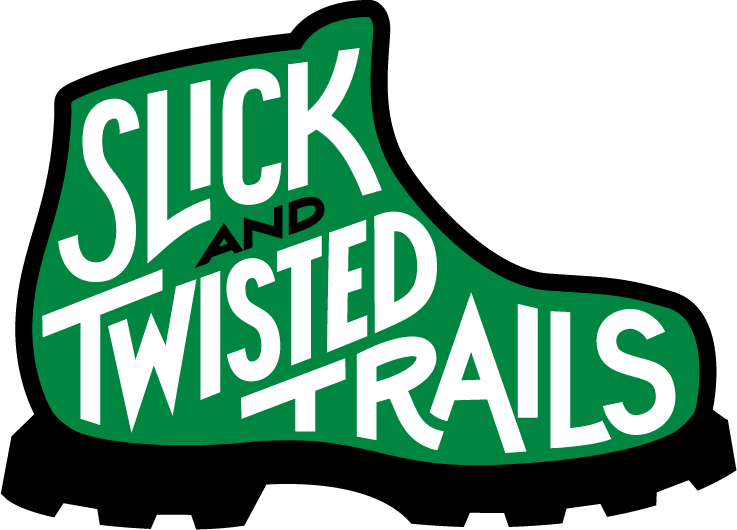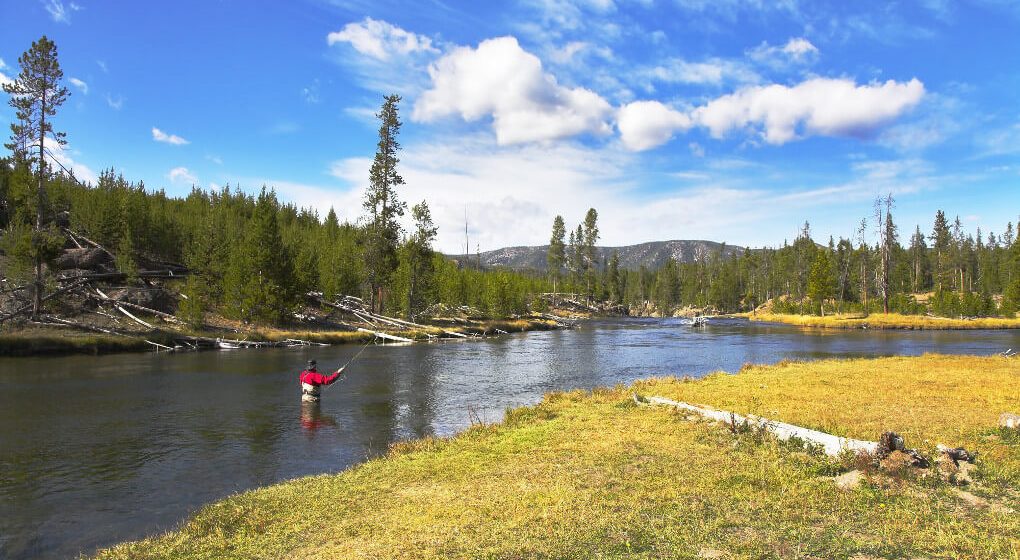
The first time I ever got a chance to enjoy fishing on a backpacking trip was during a NOLS trip in the Wind River range. At the time I was a hardcore ultralight guy and carrying the extra gear for some fly fishing made me cringe a little. Reluctantly, however, I packed up the Orvis rod and walked into the mountains.
By the end of that trip, I had enjoyed Rainbow Trout for dinner several times and fell in love with fishing while backpacking. If you haven’t tried it yet, I can’t recommend it enough!To get the most out of any fishing trip while packing in all your gear there are a few things you’ll need to know. Not only do you need to have fishing gear and fishing skills, but you’ll also need a rounded backpacking gear kit, efficient cookware and well-polished backpacking skills as well.In today’s guide, we’re going to go over as many tips, tricks, topics, and gear picks as I can think of to help you enjoy landing some fish on your next backpacking trip! If you just want a solid lightweight pole, jump to our list of the best backpacking fishing rods instead.
Why Fish on a Backpacking Trip?
This is a fair question. I mean, you could fish at the local lake or river on your weekend and go hiking on a separate day. Why bother trying to combine the two?
- You can hike into fishing areas that rarely see anglers which means more solitude and (often) easier/better fishing.
- Fishing while backpacking can be a fun way to combine the peaceful, relaxing nature of these two sports.
- Some areas can only be accessed by hiking in.
- It’s a rather affordable way to execute a fishing trip.
- Fishing can help supplement backpacking meals.
There are lots of reasons to go fishing while on the trail. I personally really love heading out fishing for the peaceful nature of the sport.Imagine backpacking into a lake all by yourself that maybe sees a dozen other anglers a year. You throw a lure or a fly and the fish practically jump out of the water. avast premier 2016 serial number Nearby your tent awaits and looming overhead are gorgeous mountain peaks. It doesn’t get much better.There’s something fundamental about combining two largely archaic skills. Backpacking and fishing go together like bread and butter – it just works.Of course, there are some downsides to fishing while backpacking. Let me outline a few for you so you can see that it’s not always rainbows (trout) and butterflies.
- Fishing gear can add a lot of weight and bulk to a backpack.
- You must remain in compliance with fishing laws.
- To cook or clean fish (if you choose to) you’ll need even more gear and may need an upgraded backpacking stove.
- There are no tackle shops or supplies.
For the most part, however, it’s relatively easy to work around most of these issues when backpacking and fishing. Fishing licenses are relatively cheap and you can grab a pamphlet of local fishing laws from most outfitter shops before you hit the trail!Don’t forget to take a ruler so you can measure fish and stay in compliance! You never know when you might run into a conservation officer.

Backpacking Fly Rods vs Pocket Fishing Poles
In the last handful of years, we’ve seen so much improvement in portable fishing gear that it’s almost hard to keep up!Today we can choose from modern or time-tested fishing methods that are practically guaranteed to land some great fish. Which method is best for you, though? Further, what are the pros and cons of each fishing method? Let’s take a deep look at all of these!
Backpacking Fly Rods
Fly fishing, of course, is one of the most recognizable forms of fishing. Using a long lightweight pole, anglers strip out yards of thick fly line to precisely land a handmade lure in front of a waiting fish who snaps it up like candy!This method requires quite a bit of practice to perfect and avast premiere kuyhaa many anglers love that it’s a more “natural” fishing method where the goal is to make the bait look like the target fish’s favorite meal.Here are some of the pros and cons of using fly rods for backpacking trips:
Pros
- Many backpacking areas are great target locations for fly fishing species
- Fly gear and tackle is small and lightweight
- Fly rods can be used to fish streams and lakes that would be difficult or impossible for spinning gear
Cons
- Fly fishing technique takes lots of effort to become proficient
- Fly rods are very long and can be delicate which means they must be carried in large protective tubes
- times-circleFly fishing requires open space to cast
I think the topic of fly fishing (and comparing it to other fishing methods) deserves an entire article or book by itself. However, for the purposes of our article, this summarizes the topic sufficiently.
The Fly Rod We Recommend: PLUSINNO Lightweight Ultra Portable Fly Fishing Rod
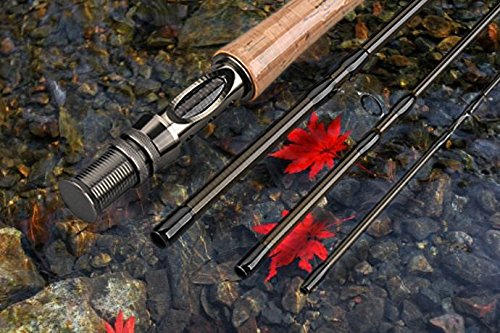
Our top pick for an affordable fly fishing rod that can get you out on the trail is the Plusinno rod. They make quite a few different rods, but this combo kit is great for getting going.Included is a Torray carbon fiber rod, a reel, carrying case, backer, and a few flies. I’ve chosen this rod because it’s a 5-6wt rod which makes it a decent all-around choice for beginners. If you’re targeting smaller fish on your trip, lisensi avast terbaru however, you could easily go to a 4-5 wt.The rod can be broken down into 4 pieces and weighs just 5.2 ounces overall.If I had to suggest improvements for this rod when it comes to backpacking I might want it to break down into more pieces (to pack into the backpack easier).You’ll want to get some leader, tippet and probably better flies that are targeted to the area and species you’re fishing before you head out on the trail.
Backpacking Tenkara Rods
If you’ve never heard of Tenkara fishing let me fill you in. This is a style where you’re essentially fly fishing with a fixed length of line and no reel.Essentially you’ve got a straight, lightweight, telescoping rod usually 10′ or longer. On the end is tied a length of line with your chosen fly. It’s really that simple.Tenkara rods have pros and cons like any method but they speak heavily to backpackers for a few reasons. Because they lack a reel they’re very lightweight and simple which means they’re easier to pack in and out and you barely notice them in the pack!
Pros
- Lightweight – usually a couple of ounces total!
- Simple – rod, line, and flies are the only things needed
- Telescoping rod protects itself when stored in the backpack
Cons
- Limited to the length of rod and line you have on hand
- The technique is similar to fly fishing and requires lots of open space
- times-circleTarget species and locations are limited
If you’re good with a Tenkara rod it can be the perfect solution to backpacking and fishing combined! Put in the hours to get practiced with your Tenkara rod and you’ll slay them out there. However, this method isn’t for everyone and if you’re shy about fly fishing you may want to look at our next method.
The Tenkara Rod We Recommend: Wild Water Fly Fishing Tenkara Rod and Reel Combo
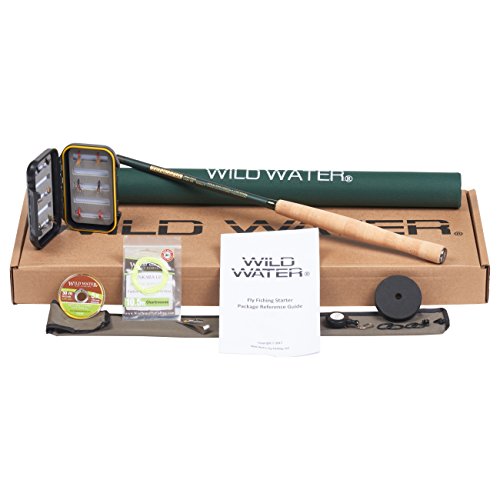
Maybe the best rod setup for backpacking in my view, this Tenkara setup is ready to fish right out of the box!Included is a telescoping rod, line, tippet, flies, clippers and carrying case. It’s honestly everything you need to get out fishing at a bare minimum.One thing I love about this setup is that the included flies are, at least passably, usable for most trout species in backpacking situations around North America. Don’t get me wrong – I’m no fly expert, but many of these combo packs come with flies that are just wildly inappropriate for targeting backpacking locations in general.There is really nothing else you need to get started fishing other than some water to cast into! Of course, like all forms of fishing, you can spend thousands of dollars on gear, but this is a good place to get started and get out there without overcomplicating things.
Pocket Fishing Rods and Telescoping Spinning Rods
Pocket rods are a relative newcomer to the scene for portable fishing methods. What you’ve got here is a telescoping collapsible (usually) spinning rod that’s lightweight and relatively small.These rods can vary wildly in price, quality, weight, and size. However, if you should find the right one for your needs, you can enjoy conventional casting and fishing on your backpacking trip!
Pros
- Telescoping poles collapse small enough to be carried in a pack
- Can use casting techniques to fish areas where fly fishing would be impossible
- Casting techniques can be easier to master than fly techniques
Cons
- Heavier than Tenkara rods
- Conventional tackle may be hard to use in small or shallow waters
- times-circleRequires tackle and accessories to match
Pocket fishing rods basically allow you to use modern spinning reels and casting techniques on your backpacking trip. Unfortunately, the rods and reels are also heavier and bulkier than most fly or Tenkara setups.That said, however, you might be able to target larger fish or cast into/from areas you otherwise could not with a fly or Tenkara setup.Don’t forget to check out our article about the best backpacking fishing rods which goes into much greater depth!
The Pocket Rod We Recommend: PLUSINNO Fishing Rod and Reel Combos Carbon Fiber Telescopic Rod
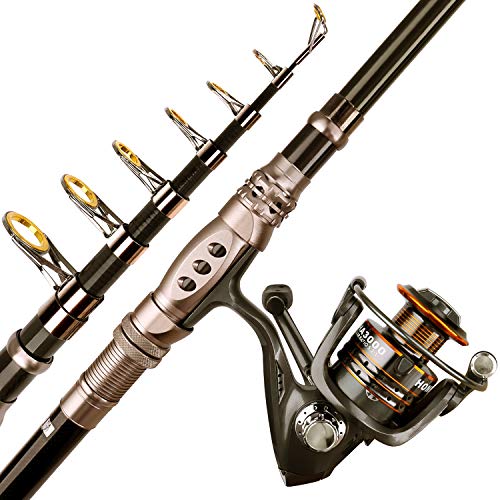
It’s pretty hard to argue with the low price and lightweight form factor of this collapsible spinning combo. In the package, you’ll find a rod and reel (an identical package is available with accessories).With a gear ratio of 5.2:1 it’s not particularly fast but instead strikes a good balance of leverage and speed in my view.I like the metal construction because it not only looks good but performs well in terms of durability. Unfortunately, that also means a little added weight but it still stays lightweight enough to remain viable as a backpacking rod.Keep in mind that the reel included here is about a 1,000 series reel which means it’s ideal for 6-10 pound line at the most. That’s okay, though, because the lures and target species you’re likely to be going after are probably lightweight as well.Pro Tip: You can switch reels on this rod if you want to use it in other situations.

Building a Backpacking Fishing Kit
Putting together the entire fishing kit is the hard part. Let’s just face it – you’ll probably change what you carry and how you fish over time. If you’re a complete beginner, don’t expect to get it perfectly correct the first time.As a word of advice to newbies or beginners, I recommend focusing on getting out there and practicing. Try to avoid analysis paralysis.That said, let’s go over what I think you should have in mind and have in your pack when you head out backpacking and fishing. And if you’re hunting for something to carry all this gear in, read of our list of the best fishing backpacks.
Rod and Reel
Check this off your list first. See above for details about our favorite picks when it comes to rod and reel setups for backpacking.Consider your location, what fish you want to try to catch, and how much weight/bulk you’re willing to carry.
Choosing a Line
Fly fishing and Tenkara lines are totally dictated by the rod weight you’re using. Make sure you match your fly line to the rod you’re casting with or you’ll quickly have difficulty mastering these techniques. Of course there also specific types of line for dry and wet flies. If this is overwhelming, stop into your local outfitter and ask a pro!Casting lines for spinning or casting reels will usually vary from 4-10 pounds for backpacking. I recommend some 8-pound fluorocarbon because it’s nearly invisible and sinks well for my favorite lures. If you want to fish topwater, however, consider 6-8 pound monofilament.
Choosing Lures
Flies are, of course, a whole different story from casting tackle. I’m certainly no perfect expert as I’m still learning fly fishing myself! However, if I had to choose a few flies to keep things simple and enjoy backpacking fishing on a fly rod or Tenkara rod during the summer I’d look here first:
- Adams flies
- Wooly buggers
- Caddis flies
- Nymphs
There are tons of variations of each of these flies but carrying one of each in your favorite color for summer trout fishing should get you going! For more details, check out this article that dives into summer trout flies!You can also shop a great selection of detailed flies for summer trout over at Big Fly Co.Casting tackle is miles apart from fly fishing though it’s not unheard of to cast a fly from a spinning rod on occasion.Depending on where you’re fishing I’d try some of the following tactics for summer bass and trout:
- French spinners
- Jigs
- Senko worms

One of the most universal lures you can use for trout or bass is the good old swim tail grub. Pair this with a lightweight jig head or use it un-weighted for shallow waters.I personally love small french spinners for both trout and bass (you can catch practically any active fish on these). Try brighter colors for trout and natural colors for bass (natural colors tend to work better in clearer waters). A fast retrieve with the rod tip in the air will keep these lures darting above the grass beds and rocks.You can weedless rig a tube worm for those picky fish (smallmouth bass love this) and it will bounce right off of rocks, reducing your chances of losing tackle!If I had to walk into the backcountry with just one casting lure right now, it would be a natural colored lightweight french spinner!
Note:
Avoid heavy, large casting tackle. Most streams you’ll be fishing when backpacking will be too shallow and fast moving for traditional gear like this. The only exception to this is if you happen to be specifically hiking into a deeper lake just remember that you’ll still be fishing from the bank so lightweight and simple is usually best. Things like spoons, lipless cranks, and spinnerbaits are probably too big and heavy for most applications here.
Best locations for fishing while backpacking
Let’s think about details here for a minute.Fly fishing is a fun way to fish and it’s picturesque to do so in a remote mountain stream. However, in colder months you’ll need waders and gear to keep yourself “thermally safe” out there. This is fine if you’re willing to carry the weight, but it’s prohibitive in most backpacking situations.During the summer fly, anglers can get away with “wet wading” when necessary. When you’re backpacking, getting your feet and legs wet during the summer isn’t a big deal as long as it’s warm enough to not become a medical situation.If you happen to be fishing from a bank where you have enough room to cast, you may not need to get wet at all! Usually getting in the water is a way for fly anglers to get enough open space to make a good cast.Since waders are hard to carry on a backpacking trip and sometimes the weather is too cold to get wet, you may be forced to fish from the bank. What’s to be done when there are trees, branches, and shrubs in the way and you just don’t have room for a full fly cast?Sometimes you can get away with a Tenkara cast in cramped situations.Other times you’ll be forced to throw a spinning or casting rod. These rods can cast anywhere from 2-20 feet even in cramped situations thanks to the casting method.These rods are perfect for crowded banks where you may need to cast underhand, side hand, or even pitch the lure with a gentle toss.
Landing Nets
I personally don’t use landing nets on backpacking trips. The whole point is to keep things lightweight and simple, right?I find that I rarely need a net to land a fish though it does improve the odds of landing those larger prize fish!For a backpacking trip, I’m willing to sacrifice losing the occasional fish in exchange for not having to carry a bulky and heavy landing net.If you do choose to carry a landing net, look for the lightest and smallest net you can find that still can accommodate the fish you’ll be targeting.I’m not even going to make a recommendation here because currently, I am not even aware of a landing net that meets the needs of backpacking. If you have a favorite lightweight net that you like to take backpacking, leave us a comment and share with other readers!
Conclusion
In the end, you’ll have to choose the right backpacking fishing setup for your preferences.It’s not just about which type of gear is the best, it’s about which one makes sense for you and your location.I think there’s a strong case to be made for Tenkara being one of the most effective and efficient methods for backpackers. Of course, this isn’t a rule, it’s just a rough guideline.You’ll be happiest at the end of the day if you choose the right method for your unique situation. Plus, if you’re not already a fan of backpacking and fishing you may find it’s the perfect way to combine new sports in order to gain new enjoyment in the outdoors and on the trail!We all get burned out sooner or later, so keep it fresh by planning a backpacking fishing trip this summer.
